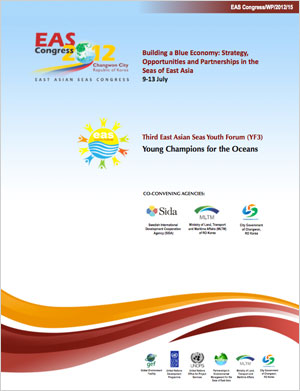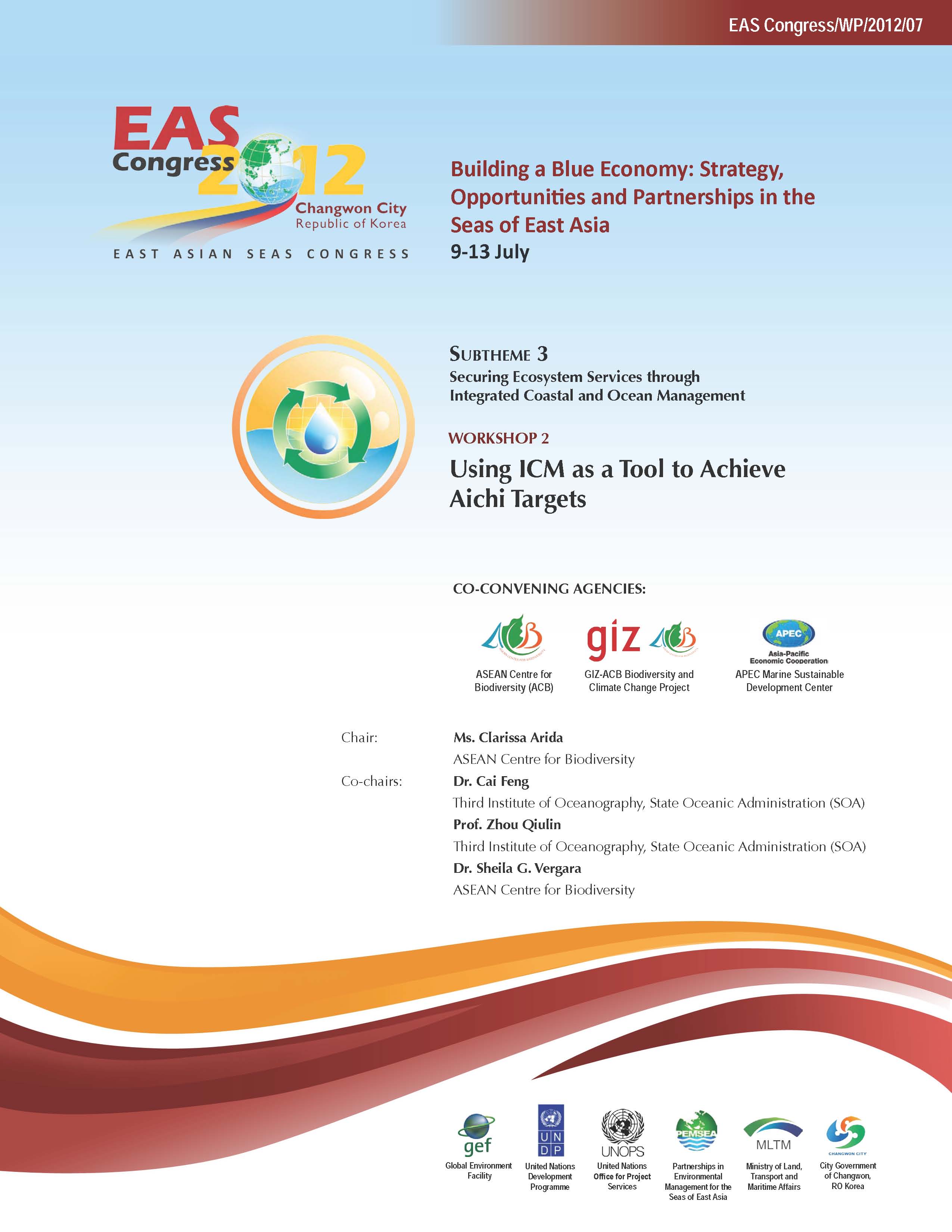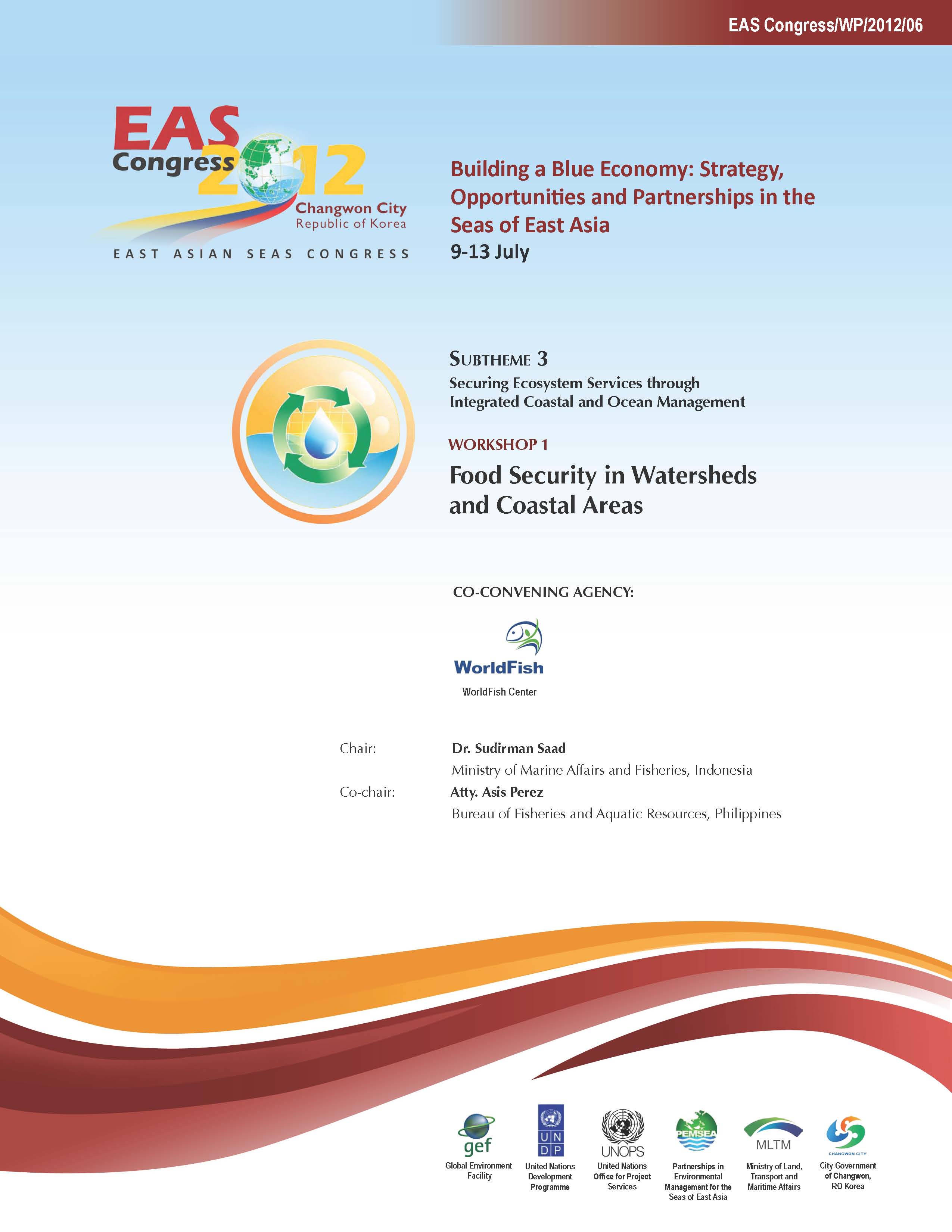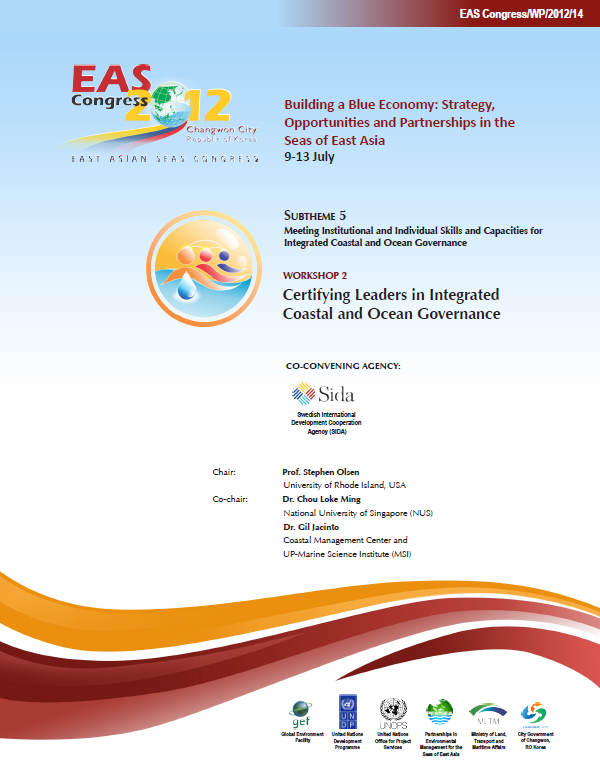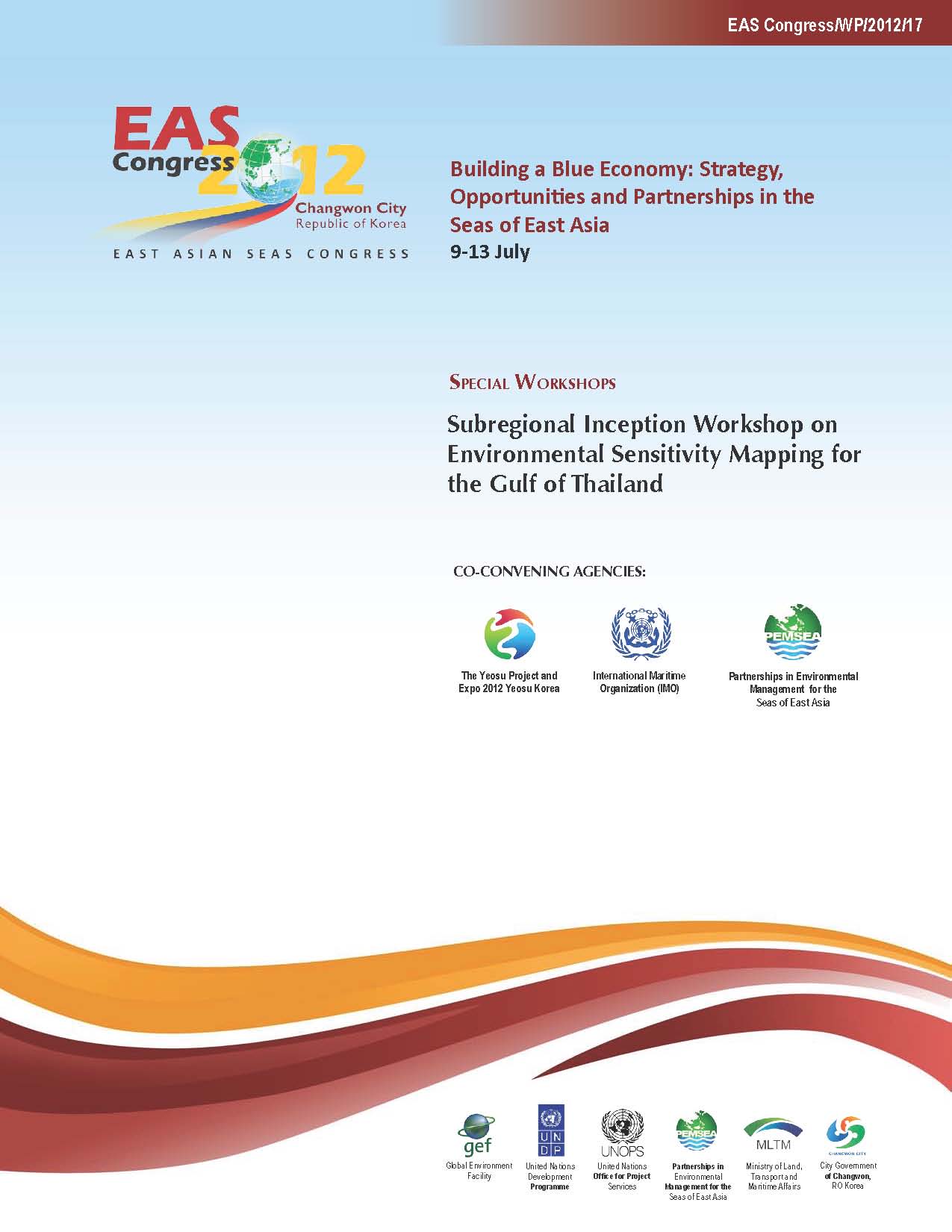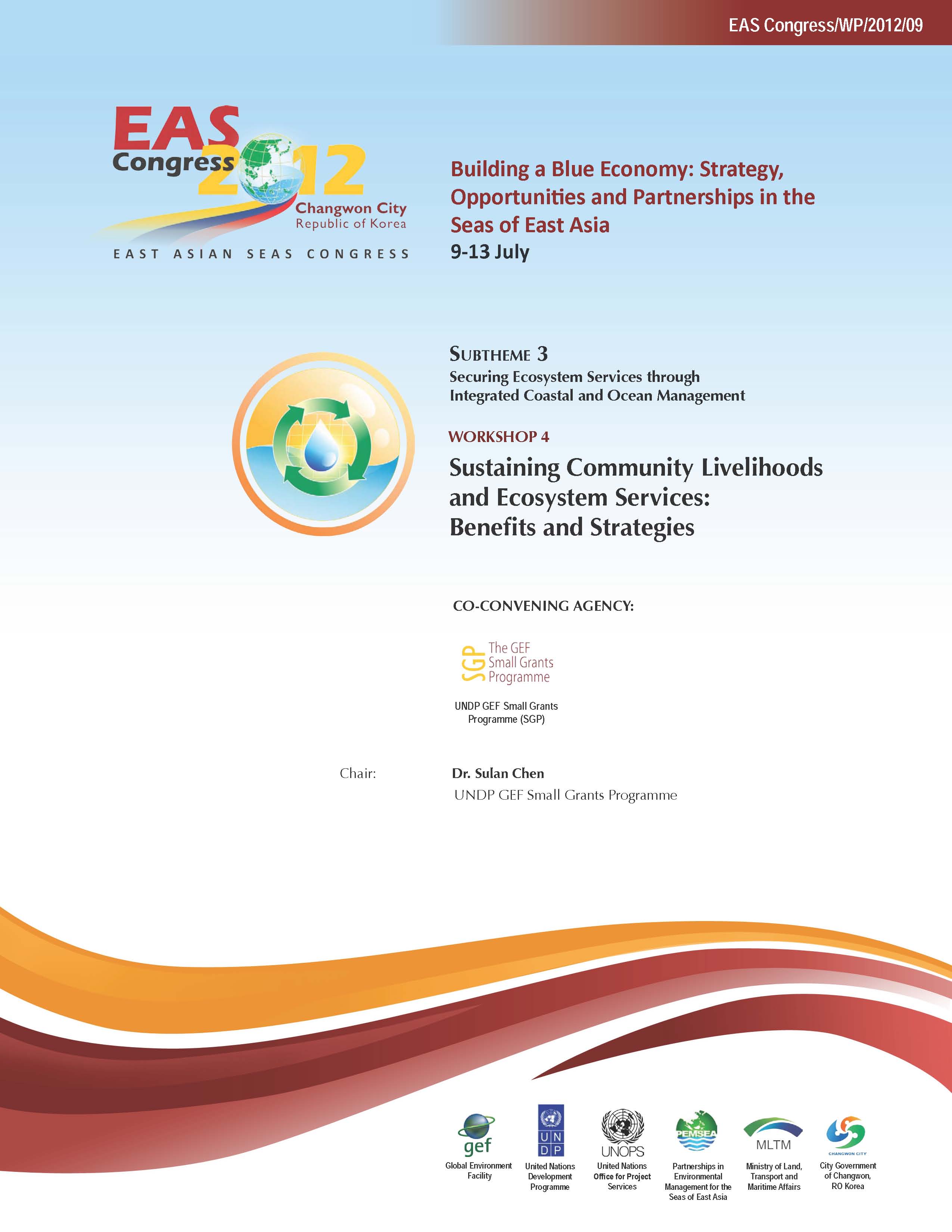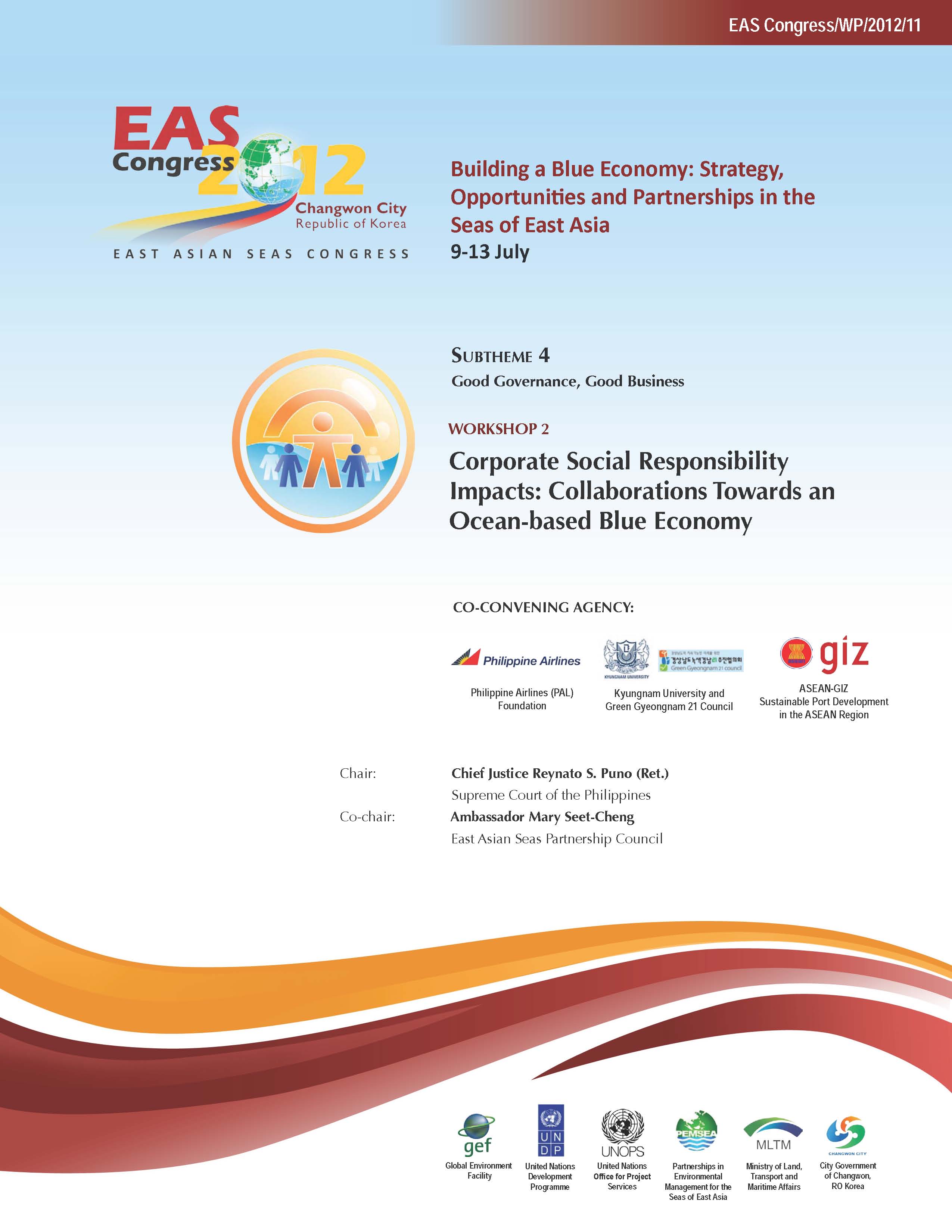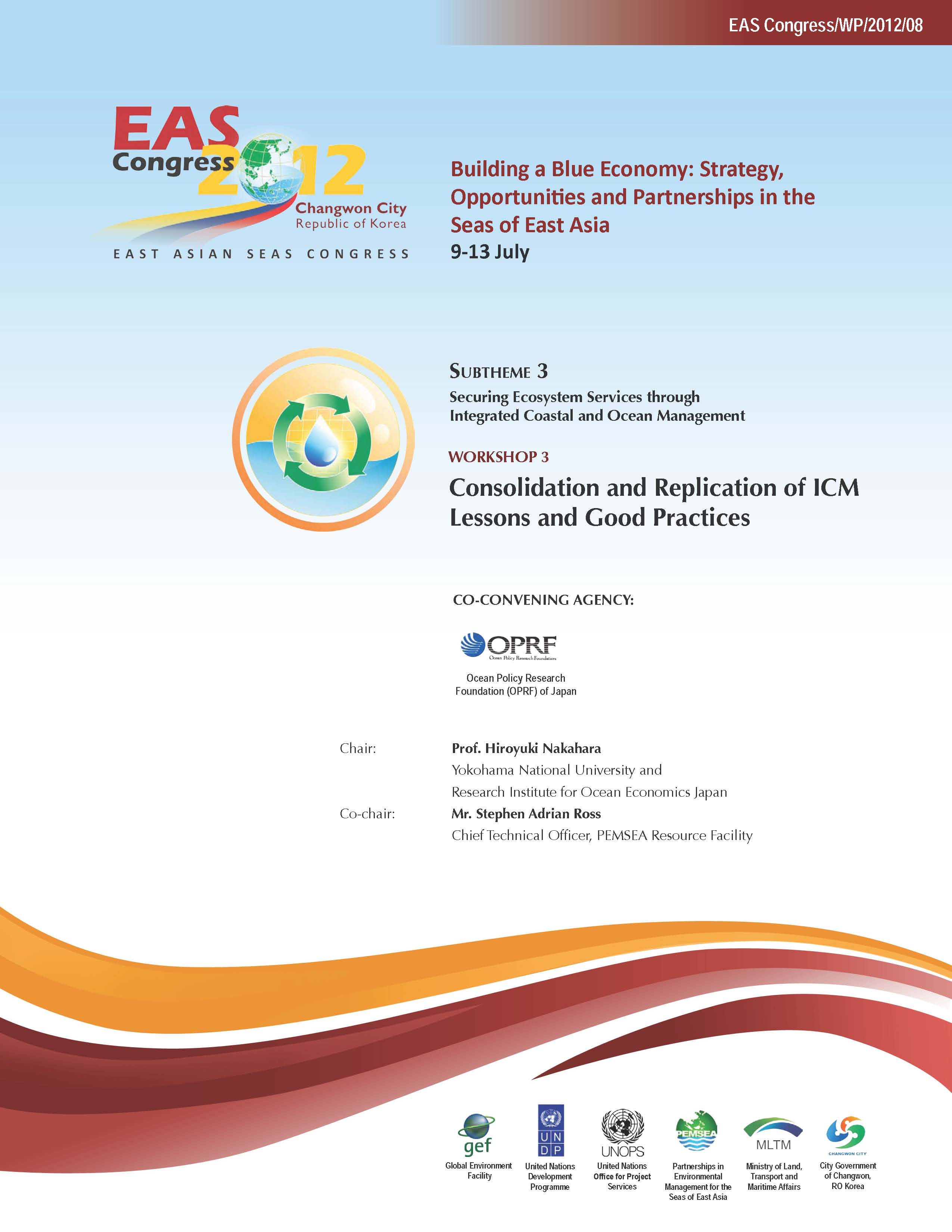
Breadcrumb
Proceedings of the Third East Asian Seas Youth Forum (YF3): Young Champions for the Sea
The oceans and coasts of the East Asian region are among the most biologically diverse and productive areas in the world. However, these areas have been threatened over the years by various problems and issues due to rapid socioeconomic activities, population growth and several other factors. The youth, as inheritors of the planet, have the most at stake. But they can also play a significant role in securing their future and that of generations to come, if their potential can be properly utilized. Existing efforts for the sustainable development of our oceans and coasts will only be sustained if the younger generation gets involved in environmental and resource management. Now on its third cycle, the East Asian Seas Youth Forum gathered young leaders to share their experiences in protecting the oceans and coasts of East Asia. The Third East Asian Seas Youth Forum (YF3) was one of the special events of the EAS Congress, which was held from 8-13 July 2012 in Changwon City, Republic of Korea. The YF3 included 91 participants, 48 of which were from 11 EAS countries including Cambodia, PR China, Indonesia, Japan, Lao PDR, Malaysia, Philippines, Singapore, Thailand, Timor-Leste and Viet Nam. Forty-three participants were representatives of various environmental youth groups in RO Korea. Carrying the theme, “Young Champions for the Ocean,” the YF3 was designed to enhance awareness and to develop the potential of the youth of East Asia as future practitioners in coastal and ocean management. This publication summarizes the outcome of the Forum.
Proceedings of the Workshop on Using ICM as a Tool to Achieve Aichi Targets
This publication summarizes the results of the workshop on Using ICM as a Tool to Achieve Aichi Targets held during the East Asian Seas Congress 2012. The workshop explored good practices from country case studies on the use of marine protected areas (MPAs), integrated coastal management (ICM) and other approaches to address biodiversity loss, reduce pressures, improve the status and enhance benefits of coastal and marine biodiversity and ecosystem services to contribute to the achievement of the Aichi targets as embodied in the Strategic Plan for Biodiversity (2011–2020) of the Convention on Biological Diversity.
Proceedings of the Workshop on Our coasts and seas: The engine of the blue economy
This publication summarizes the results of the workshop on Our coasts and seas: The engine of the blue economy held during the East Asian Seas Congress 2012. The workshop under Subtheme 1, "Our coasts and seas: the engine of the blue economy," aimed to: Discuss national and local level initiatives in line with sustainable development principles. Examine the contribution of integrated coastal management (ICM) in the efforts to sustain the coasts and oceans of the region. Integrate the information to see how they contribute to the development of an ocean-based blue economy in the East Asian Seas region.
Proceedings of the Workshop on Food Security in Watersheds and Coastal Areas
This publication summarizes the results of the workshop on Food Security in Watersheds and Coastal Areas held during the East Asian Seas Congress 2012. With the WorldFish Center as the co-convenor, representatives from the national and local government agencies, nongovernmental organizations, private sector, civil society groups, research institutions and the academe from various countries participated in Workshop 1: Food Security in Watersheds and Coastal under Subtheme 3: Securing Ecosystem Services through Integrated Coastal and Ocean Management.
Proceedings of the Workshop on Certifying Leaders in Integrated Coastal and Ocean Governance
This publication summarizes the results of the workshop on Certifying Leaders in Integrated Coastal and Ocean Governance held during the East Asian Seas Congress 2012.
One of the issues discussed in the 2009 East Asian Seas (EAS) Congress in Manila, Philippines, was that in the future — and to further create a demand and an incentive to stay the course of integrated coastal and ocean governance — there is a need to professionalize ICM practice. A certification program for practitioners is one strategy for meeting that need.
Proceedings of the Subregional Inception Workshop on Environmental Sensitivity Mapping for the Gulf of Thailand
This publication summarizes the results of the Subregional Inception Workshop on Environmental Sensitivity Mapping for the Gulf of Thailand held during the East Asian Seas Congress 2012. The project activities and expected outputs of the workshop include the following: Establishment of the subregional ESI project steering committee Establishment of national ESI technical teams Conduct of subregional inception workshop Data gathering, validation, assessment and analysis Production of ESI maps for each country Conduct of national validation workshops Conduct of subregional integration workshop (integration of maps to produce a GOT ESI Atlas) Publication of the GOT ESI atlas Implementation of communication and advocacy plan
Proceedings of the Workshop on Sustaining Community Livelihoods and Ecosystem Services: Benefits and Strategies
This publication summarizes the results of the workshop on Sustaining Community Livelihoods and Ecosystem Services: Benefits and Strategies held during the East Asian Seas Congress 2012. The workshop aimed to explore key considerations in strengthening the initiatives of community-based organizations through the framework of ICM programs, including: Capacity development needs for sustaining local and community-based initiatives; Replicating and scaling up good practices and lessons in community-based management to other sites; Sustaining and mainstreaming community-based projects into the development and investment plans of local governments; The potential in establishing eco-business models for community-based management, in support of a "blue economy" at the local level; and Strengthening community participation in local governance mechanism for sustainable development of marine and coastal areas and resources.
Proceedings of the Workshop on Corporate Social Responsibility Impacts: Collaborations Towards an Ocean-based Blue Economy
This publication summarizes the results of the workshop on Corporate Social Responsibility Impacts: Collaborations Towards an Ocean-based Blue Economy held during the East Asian Seas Congress 2012. The workshop highlighted the growing involvement and the value of the corporate or business sector in sustainable coastal and marine development. In particular, the workshop showed the different strategies applied by corporations through corporate efforts and partnerships between the local governments and the business community for the sustainable development of marine and coastal areas, showcasing how public-private partnerships (PPPs) through corporate social responsibility (CSR) can enhance the region's sustainability as well as discussions on new strategies. The workshop also aimed to build awareness for and encourage multinational and national corporations to integrate sustainability strategies into their organizational policies, programs and practices focused on the specific management issues in coastal and marine areas.
Proceedings of the Workshop on Consolidation and Replication of ICM Lessons and Good Practices
This publication summarizes the results of the workshop on Consolidation and Replication of ICM Lessons and Good Practices held during the East Asian Seas Congress 2012. The workshop included paper presentations on regional, national and sub-national perspectives on how ICM helps achieve sustainable development targets and priorities at different levels of governance, while fulfilling international commitments to sustainable development targets and commitments. The workshop also delved on the question of how ICM implementation can be scaled up across the region, particularly in highly urbanized coastal cities. Replicating the lessons and good practices that have been learned by local governments across the region was also discussed.
